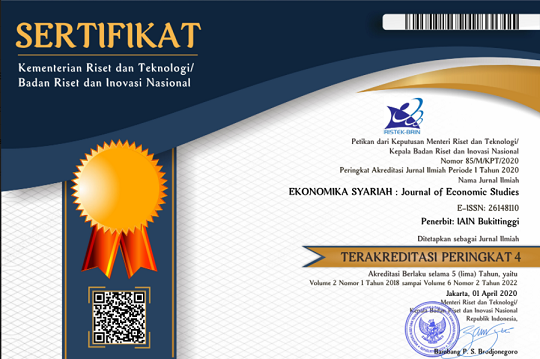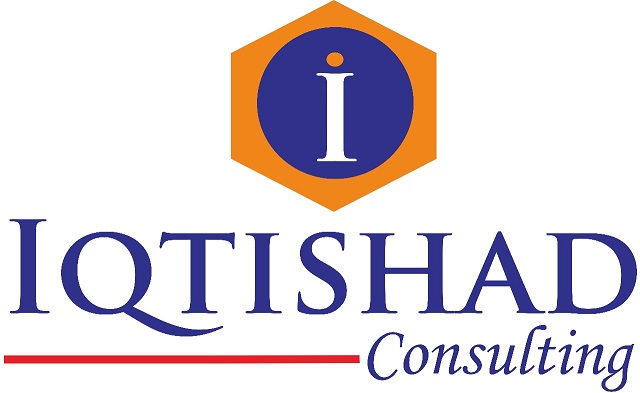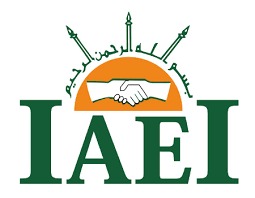Implementation of QRIS-Based Payments Towards the Digitalization of Indonesian MSMEs
DOI:
https://doi.org/10.30983/es.v5i2.5027Keywords:
MSMEs, Digitalization, QRIS.Abstract
This study aims to determine the implementation of QRIS as measured by the existence and urgency as a payment digitalization medium to support the Digitalization of MSMEs in the context of Indonesia's economic recovery. This research is a literature study that was analyzed using a qualitative-descriptive approach with secondary data sources originating from journals and reports related to the Digitalization of MSMEs. The results and discussion of this research, that the QRIS launched by Bank Indonesia can help MSME actors adapt to existing conditions. QRIS as a MSME survival strategy is carried with the theme EXCELLENCE (UNiversal, Easy, Profit and Direct). The theme was taken because the use of QRIS is easy and practical, namely by scanning the QR code that has been provided by the merchant. QRIS has been officially launched and supervised under Bank Indonesia. The easy use of QRIS provides benefits for both merchants and buyers, especially for users of non-cash payment applications. For merchants, QRIS is useful in terms of increasing sales, practicality, branding, saving, avoiding counterfeit money, segregating business funds, and credit profiles. QRIS are flexible, safe and practical so that QRIS can become the driving force in the acceleration of digitalization for economic recovery.
Â
Penelitian bertujuan untuk mengetahui implementasi dari QRIS yang diukur dari eksistensi serta urgensi sebagai media digitalisasi pembayaran guna mendukung digitalisasi UMKM dalam rangka pemulihan perekonomian Indonesia. Penelitian ini merupakan penelitian studi pustaka yang dianalisis dengan menggunakan pendekatan kualitatif-deskriptif dalam menjelaskan fenomena terkait implementasi QRIS pada UMKM. Sumber data yang digunakan adalah sumber data sekunder yang berasal dari jurnal maupun laporan terkait dengan digitalisasi UMKM. Hasil dan pembahasan dari penelitian ini, bahwa QRIS yang diluncurkan oleh Bank Indonesia dapat membantu adaptasi pelaku UMKM terkait kondisi yang ada. QRIS sebagai strategi bertahan UMKM ini diusung dengan tema UNGGUL (UNiversal, GampanG, Untung dan Langsung). Tema tersebut diambil karena penggunaan QRIS yang mudah dan praktis, yaitu dengan melakukan scan pada QR code yang sudah disediakan oleh merchant. QRIS telah resmi diluncurkan dan diawasi dibawah Bank Indonesia. Penggunaan QRIS yang mudah memberikan manfaat baik bagi merchant maupun kepada pembeli terutama bagi pengguna aplikasi pembayaran non tunai. Bagi merchant, QRIS bermanfaat dalam segi, peningkatan penjuala, praktis, branding, hemat, penghindaran uang palsu, pemisahan dana usaha, dan credit profile. Bagi pengguna, manfaat QRIS berupa, fleksibel, aman dan praktis. Dalam hal ini, maka dapat dikatakan QRIS sebagai pendorong percepatan digitalisasi guna pemulihan ekonomi.
Â
References
Journal
Akbar, Ricky, Meza Silvana, and Fikiri Aulia Alizar, 'Designing a Non-Cash Payment Application for Car Wash Business Management Using QR Code Technology (Case Study: Oto Pro Car Wash & Detailing Padang)', National Seminar on Science and Technology, 1.1 ( 2019), 1–13
Alfarizi, Muhammad, Rastinia Kamila Hanum, and Syaibatul Aslamiyah Hidayat, 'Optimizing the Use of Sharia Digital Transactions To Sup-Port Indonesia' S Economic Recovery', 6.1 (2021), 122–32 <https://doi.org/10.20473 /jiet.v6.i1.25977>
Arifqi, Moh. Musfiq, 'Indonesia's Economic Recovery Through Digitizing Sharia-Based MSMEs During the Covid-19 Pandemic', Al-Kharaj: Islamic Journal of Economics, Finance & Business, 3.2 (2021), 192–205 <https://doi.org/10.47467/ alkharaj.v3i2.311>
Bara, AL, and Riyan Pradesyah, 'Analysis of Restructuring for MSMEs in a Pandemic Period', 2021, 318–22
Business, Journal of Management, '(1) (2) (3)', 17.2 (2020), 287–97
Blandina, Selena Riri, Alvin Noor Fitrian, and Wulan Septiyani, 'Strategies to Avoid Indonesia from the Threat of an Economic Recession During a Pandemic', Effector, 7.2 (2020), 181–90
Cakrawati, Jurnal, and I Ketut Kasna, 'Guarding Economic Recovery After the Pandemic', 04.02 (2022), 103–13
Fahrika, A Ika, and Juliansyah Roy, 'The Impact of the Covid-19 Pandemic on Macroeconomic Developments in Indonesia and Policy Responses Taken The Impact of the Covid-19 Pandemic on Macroeconomic Developments in Indonesia and The Policy Response Taken', Innovation, 16.2 ( 2020), 206–13
Irawan, Agustinus Purna, Hetty Karunia Tunjungsari, Paula Tjatoerwidya Anggarina, and Nicholas Rijako, 'The Role of Higher Education in Improving Micro, Small, and Medium Enterprises' Performance; A Case Study: Untar For MSMEs', Proceedings of the International Conference on Economics, Business, Social, and Humanities (ICEBSH 2021), 570.ICEBSH (2021), 1417–20 <https://doi.org/10.2991/assehr .k.210805.222>
Kurniawan, Indra, and Hari Sukarno, 'The Shifting Of Qr Code-Based Payment Method To Improve The Competitive Advantage ( Ca ) At Bank Jatim Through Tam Model Approach', 23.3 (2021), 22–27
Maharani, Shinta, 'Digital Economy: Future Opportunities And Challenges Towards Islamic Economy In Indonesia', Conference on Islamic Studies (CoIS ), 2019, 1–11 <http://lppm-unissula.com/jurnal.unissula.ac. en/index.php/cois/article/download/7981/3634>
Manurung, Evelyn Angelita pinondang, and Eka Ayu Purnama Lestari, 'Study of Qr-Code-Based E-Payment Protection in E-Commerce', Journal of Research and Development of Science and Humanities, 4.1 (2020), 28 <https://doi.org /10.23887/jppsh.v4i1.24323>
Nalini, Siti Nuzul Laila, 'The Impact of Covid-19 on Micro, Small and Medium Enterprises', Jesya (Journal of Sharia Economics & Economics), 4.1 (2021), 662–69 <https://doi.org/10.36778/jesya .v4i1.278>
Nastiti, Dwiny Indah, Sitti Nur, Azmi Fadhlurrahmah, and Nurul Hermina, 'The Impacts Of Macro Environment And Consumer Behavior On Performance Improvement Through Marketing Program ( Case Study On The Use Of Digital Payment By Sms Syvastem In Qris , Indonesia ' , 32.3 (2021), 8963–83
Nasution, Lily Karlina; Pure, Mayang; Dewi, Ika Sari;, Supriyanto, 'The Implementation Of Sak Etap And The Effect Of Msme Preparation In Dealing With Mea (Asean Economic Society) (Case Study On Medan & Binjai In 2016)', JOJAPS, 10 (2017), 89
Permadi, Yudistira Andi, and Angestika Wilandari, 'Preferences of Using Quick Response Code Indonesian Standard (QRIS) Among Students as a Means of Digital Payment', 03.01 (2021)
Prehanto, Adi, Rangga Degree Guntara, and Nuraly Masum Aprily, 'Utilizing Webinars as Alternatives to Digitizing Information in Curriculum Seminars', Indonesian Journal of Digital Business, 1.1 May 2021 (2021), 42–48 <https://ejournal.upi. edu/index.php/IJDB/article/view/34356>
Putri, Retno Karunia, Rahmawati Indah Sari, Rita Wahyuningsih, and Ety Meikhati, 'The Phk Rate Against Decline', 1.1 (2020), 50–55
Putro, Suryati Eko, and Novie Noordiana, 'Development of Micro, Small and Medium Enterprises (MSMEs) in the Context of Economic Empowerment in the New Normal Era', Journal of Community Service, 1.2 (2021), 65–72
Rizkyka Choirunnisa and Egi Arvian Firmansyah, ‘Muslim Consumer Behavior and Purchase’, EKONOMIKA SYARIAH: Journal of Economic Studies, 5.1 (2021), 11–30
Saputri, Oktoviana Banda, 'Consumer Preferences in Using the Quick Response Code Indonesia Standard (QRIS) as a Digital Payment Tool', Journals of Economics and Business Mulawarman, 17.2 (2020), 237–47
Setiyono, Taufiq Andre, 'Indonesian's Acceptance of Non-Cash Transaction Using Qris', Proceedings of the 3rd International Conference on Banking, Accounting, Management and Economics (ICOBAME 2020), 169.Icobame 2020 (2021), 141–44
Simamora, Caterin Magdalena, and Rahayu Ningsih, 'Inclusivity of the Digital Economy in Indonesia: Gender Perspectives and Job Creation.', Cendekia Niaga, 4.2 (2020), 39–53 <https://doi.org/10.52391/jcn.v4i2 .507>
Sya, Chalimatus, Debby Silvyarini Fajrin, and Neysa P Febri Anne, 'The Influence of the Performance of Foster Partners (MSMEs) on Economic Growth in Indonesia (Case Study: MSME Partners CSR&SMEPP East Java BaliNus MOR V)', ISEI Economic Review, I.1 ( 2017), 20–25 http://jurnal.iseibandung.or.id/index.php/ier
Website
Indonesia, Bank, 'QR Code Indonesian Standard (QRIS)', Www.Bi.Go.Id, 2021 <https://www.bi.go.id/QRIS/default.aspx>
Indonesia, Ministry of Cooperatives and SMEs Republic, 'SME Data', Kemenkopukm Web Site, 2021
Indonesia, PT Telkom, 'QRIS', Qris Wb Site, 2020
Downloads
Submitted
Accepted
Published
Issue
Section
License
Authors who publish with this journal agree to the following terms:
- Authors retain copyright and grant the journal right of first publication with the work simultaneously licensed under a Creative Commons Attribution-ShareAlike 4.0 International License that allows others to share the work with an acknowledgment of the work's authorship and initial publication in this journal.
- Authors are able to enter into separate, additional contractual arrangements for the non-exclusive distribution of the journal's published version of the work (e.g., post it to an institutional repository or publish it in a book), with an acknowledgment of its initial publication in this journal.
- Authors are permitted and encouraged to post their work online (e.g., in institutional repositories or on their website) prior to and during the submission process, as it can lead to productive exchanges, as well as earlier and greater citation of published work (See The Effect of Open Access).













